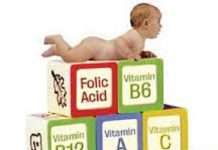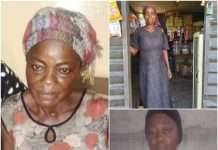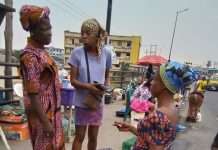“We should stop wallowing in self-pity. If we don’t tell the government what to do, it’s a waste of time. We should target the right audience.” So says Ms Della Ogunleye, a breast cancer survivor, who knows where it hurts and the right intervention needed.
The World Health Organisation, (WHO) in its latest report on global cancer burden says breast cancer has overtaken lung cancer as the leading cancer in the world with an estimated 2.3 million new cases out of 19.3 million global cancer cases diagnosed in the year 2020.
Nigeria’s breast cancer profile, as presented by the WHO aligns with the global incidence as recent statistics shows a mortality rate of 16.4 per cent out of the 22.7 per cent prevalence in 2018. It is also projected that more cancer cases will be diagnosed in the nearest future to the tune of 50 per cent increase in 2040 than in 2020.

Hence, the decision of survivors is very apt to prevent a very bleak future filled with groaning and misery of helpless patients at the hands of the deadly disease.
Global consciousness
Usually commemorated on 4 February of every year, for the singular purpose of awareness creation and advocacy, the World Cancer Day was established in 2008 by the Union for International Cancer Control (UICC) to enlighten people on cancer and to conduct screening for citizens to know their status regarding the condition.
The World Cancer Day also particularly affords breast cancer survivors the golden opportunity of telling their stories to encourage those going through or about to undergo mastectomy.
Cases
Ms Della Ogunleye, CEO, DDS African Cancer Support Group based in the UK, is one of the gallant amazons who beat breast cancer. Since she had no deep knowledge of the disease when she was diagnosed in the UK, she felt it was one of those things she could ignore and continue with her busy schedule as usual, but alas, she was slown down by the draining disease.
She never exhibited any sort of fear when diagnosed, as she assured herself of living her life to the fullest. She informed her confidants about the development and she was advised to go for medical attention, and fortunately, it was removed successfully because it was diagnosed early.
“If they had told me what the side effects of the treatment would be, that would have scared me. In the course of the treatment, I lost appetite. I lost my hair, I lost friends because the journey was terrible with the treatment. It was the support group that helped me cope with the psychological effect of losing a breast,” she narrated.
It was a different ball game for Solumkolia Obi-Anazodo, who shivered at the disclosure of her diagnostic result in 2018. “I was having a shower when I felt a lump in my breast”, she revealed. Initially, she paid less attention to it, thinking it would disappear with time, but it didn’t. The lump continued to grow and when it was examined, it turned out to be a cancerous lump; in fact, a stage 3 cancer of the breast.
“At first, I wasn’t scared. My mind didn’t even go to cancer. But when I got the report of my breast cancer, fear crept in,” Obi-Anazodo said.
Thereafter, she became an advocate like Ogunleye and others who would leave no stone unturned in seeking help for patients.
For optimal healthcare outcome to be obtained in cancer cases, Ogunleye urged patients to seek help as soon as they notice any strange development on their body – “whether on your breast, skin, or in your urine, it is important you get it checked, because it’s all about early detection”.
Ogunleye also emphasied the need for care and support from government and family members, even as she condemned the idea of self-pity which, she said will only worsen the situation.
“When you are diagnosed with cancer, you need support. Somebody has to hear your voice. We should stop wallowing in self-pity. If we don’t tell the government what to do, it’s a waste of time. We should target the right audience”.
The story of the co-founder of the Bricon Foundation, Abigail Simon-Hart, resonates with Ogunleye’s call for support and care for cancer patients. Although she was fortunate to have early discovery of the tumour, as she had double mastectomy, she stressed the importance of calmness at the onset of the journey, noting that the ripple effects of fear can be overwhelming for patients.
An advocate of breast cancer, she motivates her counterparts to do away with shame about the condition, stressing that that wouldn’t help in any way, recommending instead that they speak to the right audience about the condition for a change to take place.
Her determination paid off as her case seemed almost impossible with the cancer spread across her two breasts, when diagnosed, but she was able to break out of the condition because of her doggedness to get rid of it.
She said: “I was diagnosed of breast cancer in 2014, fortunately it was discovered early. So I had a double mastectomy, which means I removed both breasts and I’m currently cancer-free, due to the fact that we got it early.
“So I’m a great advocate of cancer awareness creation. I make bold to tell anyone I’m a cancer survivor and I’m not ashamed about it. As long as people are afraid, it brings stigma, and as long as there is stigma, people will be unwilling to come out for screening.”
Experts have also lent their voices to the need for sufficient information on the disease, adding that this will go a long way in alleviating patients’ worries. There are several challenges which make the treatment of cancer unbearable for a huge number of patients in the country.
“They are so many, but the first and largest constraint is finance, the second is lack of infrastructure and personnel and the others include stigma, shame, and fear brought about by cultural, religious, and traditional beliefs,” said Simon-Hart.
“Cancer is a very expensive disease and many Nigerians cannot afford the treatment. A CT Scan costs about 86,000 naira, a shot of chemotherapy is between 120-180 thousand Naira and a person can take up to ten shots depending on the stage of cancer. How can an average Nigerian afford that? There is no way a person will be healed if he or she is being treated while thinking of all the debt.”
Thus, getting adequate information from a care provider and support from government are significant ways to help patients.
Cancer causes
Science is yet to unravel the actual cause of cancer, but scientists have some valuable insights. According to the WHO, changes in lifestyle, unhealthy diets, insufficient physical activity, use of tobacco and harmful use of alcohol have all contributed to the increasing cancer burden. A significant proportion can also be attributed to increasing longevity, as the risk of developing cancer increases with age. This reinforces the need to invest in both cancer prevention and cancer control, focusing on actionable cancers like breast, cervical and childhood cancers.
An oncology and radiotherapy resident at Lagos University Teaching Hospital, Dr Agbakwuru Chidi, has also identified lack of breastfeeding and being pregnant as established risk factors for breast cancer.
Other causes, as noted by experts, are genetic composition, hormone treatment, radiation exposure, body weight, dense breast tissue, estrogen exposure and history of breast cancer.
COVID-19 and breast cancer
LASUTH recently disclosed the effect of the coronavirus pandemic on breast cancer patients, saying it has exacerbated the problems of late-stage diagnosis and lack of access to treatment. These occur everywhere but particularly in low- and middle-income countries. In addition to having to cope with the disruption of services, people living with cancer are also at a higher risk of severe COVID-19 illness and death.
Agbakwuru corrobated the WHO’s view saying COVID is harder on cancer patients who already have low immunity and makes them more susceptible
A WHO survey conducted in 2020 indicated that treatment for cancer had been disrupted in more than 40 per cent of countries surveyed during the pandemic. The findings of the survey have been backed up by published studies indicating that delays in diagnosis are common, while interruptions to and abandonment of therapy have increased significantly. Meanwhile, enrolment in clinical trials and research output have declined.
This shows that more commitment is expected of the Nigerian government towards cancer care than what is stated in the National Cancer Control Plan 2018 –2022. Indeed, as of now, many of its objectives are yet to be realised barely a year to the end of the deadline.
The programme aims at achieving greater than 50 per cent screening of eligible population by 2022; and increase by at least 50 per cent the functionality of the comprehensive cancer care centres by the year 2022, among others. But hardly has any of these goals been accomplished.
Cure and coping strategies
Studies and survivors’ stories have validated that breast cancer can be cured if detected early and treated accordingly. The WHO’s statement on the eve of World Cancer Day 2021 underscored this as it stressed the possibility of cure for breast, cervical and childhood cancers, if diagnosed early and treated appropriately.
“Breast, cervical and childhood cancers all have a high chance of cure if diagnosed early and treated appropriately. This World Cancer Day, WHO is moving ahead with our partners around the world in efforts both to prevent and control cancer and also to provide support to all people living with cancer, wherever they live and whatever their circumstances,” it disclosed.
The battle continues
Having being cured of their conditions, survivors have expressed another major challenge confronting them, which is coping with psychosocial trauma of living with one or no breast. Although the option of breast implant exists, the scare of complications often makes them jettison it.
In a study titled, “Life without a breast: Exploring the experiences of young Nigerian women after mastectomy for breast cancer”, published in the Journal of Global Oncology, participants bared their minds on psychosocial issues related to having one or both breast off.
Survivors who participated in the study revealed how they have successfully coped with this trauma years after their surgery. They explained how they intentionally developed certain strategies to help them cope psychologically. Some of the strategies employed include: Self-acceptance, distraction, lightheartedness, and religion.
With respect to self-acceptance, a 35-year-old participant said: “Just accept yourself the way you are”. Whenever some women felt downcast, they engaged in activities that would distract them. For instance, one participant said: “At times, I would stroll out or pick up my phone”. Being lighthearted about having had the breast removed also helped some participants.














tadalafil 40 mg daily: http://tadalafilonline20.com/ order tadalafil